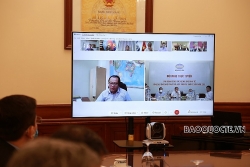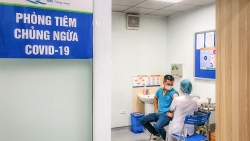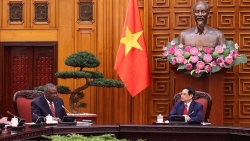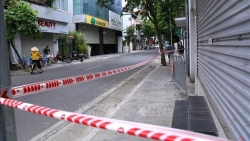
Prime Minister to request stricter social distancing
Latest
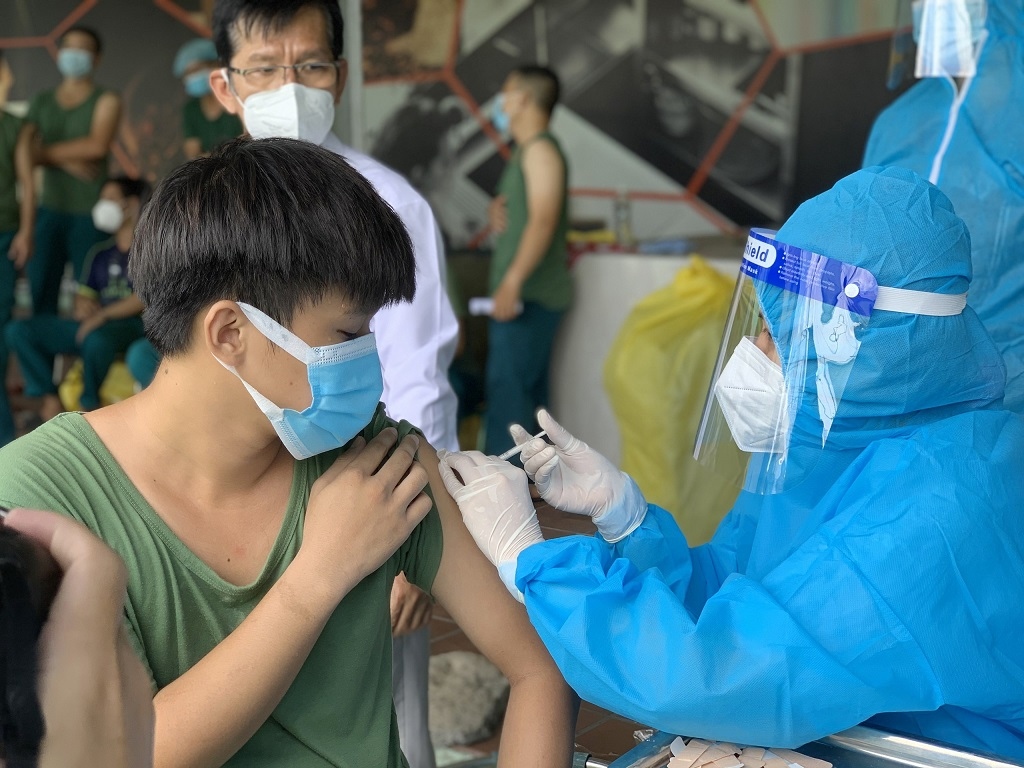 |
| Covid-19 vaccination in Ho Chi Minh City. (Source: VNA) |
Prime Minister Pham Minh Chinh has asked local authorities, which are imposing social distancing, not to let residents leave their places of residence for another locality after July 31 until the end of social distancing in his latest dispatch.
Under the document, Ho Chi Minh City along with 18 southern localities will continue to enforce social distancing measures in line with the Government’s Directive 16 for two more weeks.
The original social distancing order for the entire southern region with a population of about 35 million people, effective since July 19, was set to expire on August 1 but the fourth-wave COVID-19 outbreak has shown no signs of letting up.
The Prime Minister wants all localities under Directive 16 – which includes measures like the closure of all non-essential businesses, leaving home only for essential goods and services, and suspension of public transport – to strictly abide by the rules and stand ready to roll out more stringent measures if necessary.
Most of southern localities, including Ho Chi Minh City, Binh Duong, and Dong Nai asked people not to go outside at night.
The order goes on to state that local authorities must step up their information campaign and carry out immediately necessary measures to ensure the livelihood and healthcare of residents to ensure they can remain where they are.
The order came as thousands of people – mostly workers from the central region and other southern localities – have left or were making plans to leave Ho Chi Minh City on their personal vehicles for their hometown due to the worsening COVID-19 outbreak, business closures, the imposition of social distancing, and the adverse impacts it was having on their livelihoods.
“Leaders of provinces and cities are responsible to the Prime Minister if they let people travel out of their localities on their own. For people who want to leave one province for another, all relevant localities’ authorities must organise the pick-up and drop-off sites to ensure the safety of the community, as well as arrange testing, transportation by car (trucks can be used to carry people's motorbikes if people travel by motorbike), handover protocols, quarantine facilities and medical supervision in accordance with regulations, in order to not let the disease spread,” the dispatch reads.
The Ministry of Public Security has been tasked with consulting local authorities with regard to transportation and routes.
The dispatch notes that if the social distancing measures are effective, and if the situation is under control, provincial and municipal authorities could consider lifting restrictions for certain areas under their jurisdiction. For inter-provincial areas, however, restriction removal would need the agreement of all concerned localities and the plan would have to be submitted to the National Steering Committee for COVID-19 Prevention and Control before any decision was made.
All local governments across the country need to immediately provide food and medical attention for all workers suffering from income loss or those without savings. Support for their people who are working or living in Ho Chi Minh City or elsewhere with complicated COVID-19 situations must be provided.
The Prime Minister urged a faster rollout of COVID-19 vaccinations and emphasised that no dose should go to waste. He also said that administrators of the vaccination programme must ensure priority groups receive theirs first and that there are not incidents of abuses of power to administer vaccines to ineligible persons.
The Government leader also called for the participation of medical workers in the private sector in the local COVID-19 fight and said they should stand ready to reinforce localities with high case numbers in line with the health ministry’s direction.
The Ministry of Public Security will need to lead efforts to handle fake news that undermine COVID-19 prevention and control efforts.
The Ministry of Health has also been told to shorten administrative procedures related to production and the supply of COVID-19 vaccines and drugs, and review and propose additional appropriate support policies for medical staff and frontline forces.




